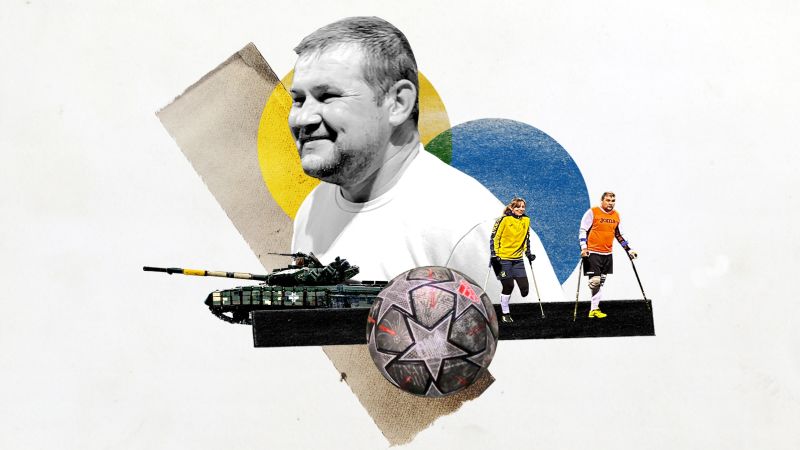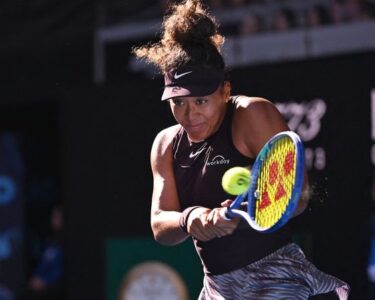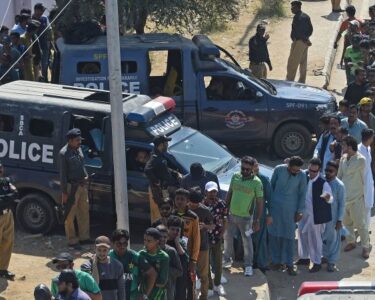CNN
—
Breathing heavily, Oleksandr Malchevsky puts on his prosthesis and hurries home to his wife and son. The 39-year-old has just lost a soccer game, but he isn’t too upset. For him, the sport is more than just a game – it’s about helping his rehabilitation as he adjusts to civilian life.
Malchevsky is a Ukrainian soldier who lost part of his leg fighting in Eastern Ukraine. He voluntarily joined the army when Russia invaded Ukraine in 2022 and served as a gunner. Last year in the Kharkiv region, he came under mortar fire and was seriously injured. The doctors saved his left leg but had to amputate part of his right limb.
After a year of painful rehabilitation, Malchevsky returned to Kyiv – his native city – and joined the soccer team with other soldiers who had lost limbs fighting for Ukraine.
“All my life, I played football in this stadium. When I returned with an injury from the frontline, I was unsure what to do. I joined the team, and I have to say that I’m happy. Here I get a moral relief from everyday life,” Malchevsky, who was discharged from the army for health reasons, told CNN Sport.
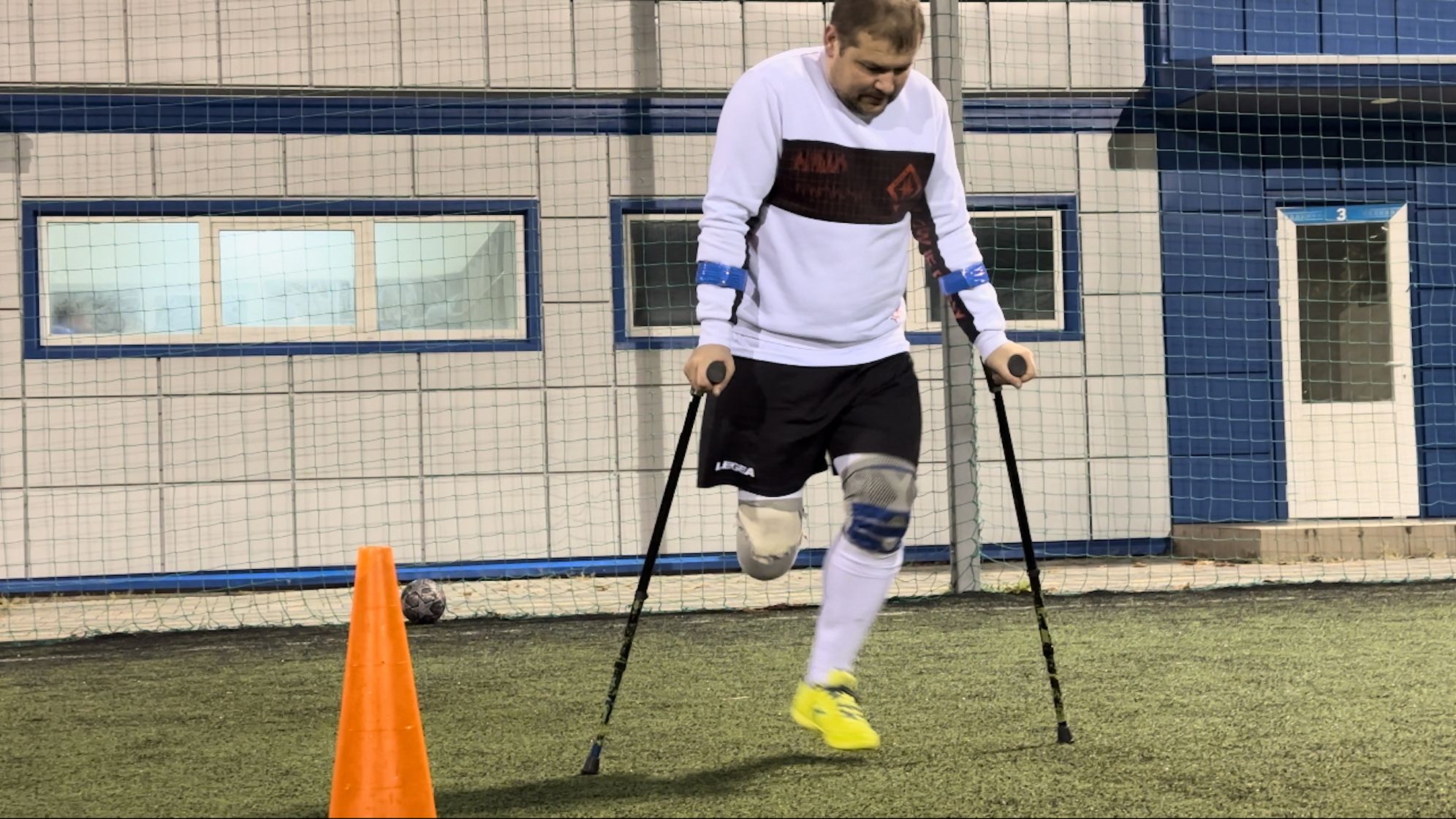
Amputees, both civilians and soldiers, play football at the small Bannikov Stadium in the center of Kyiv every Thursday. The sessions normally run for two hours and allow the amputees to practice skills, perform strength and conditioning exercises and play games.
The Ukrainian Football Federation organized this initiative a few months ago to support soldiers who lost limbs and help their rehabilitation and return to normal life. There are both men and women. Some of them were injured after the 2022 invasion, while others lost limbs following the start of the war in Ukraine in 2014.
Reportedly over 20,000 Ukrainians have needed amputations since the war began in February 2022. The coach in charge of Thursday’s session is Dmytro Rzondkovsky. He says there are not many people playing at the moment, but he hopes more will come.
“I think football provides psychological support, first of all,” Rzondkovsky, who is also the coach of the Ukrainian amputee football team, told CNN.
“Here, these people find new friends and communication. I was really surprised by how much these people love life, football, and sports. This love of life is something I’m still learning from them.”
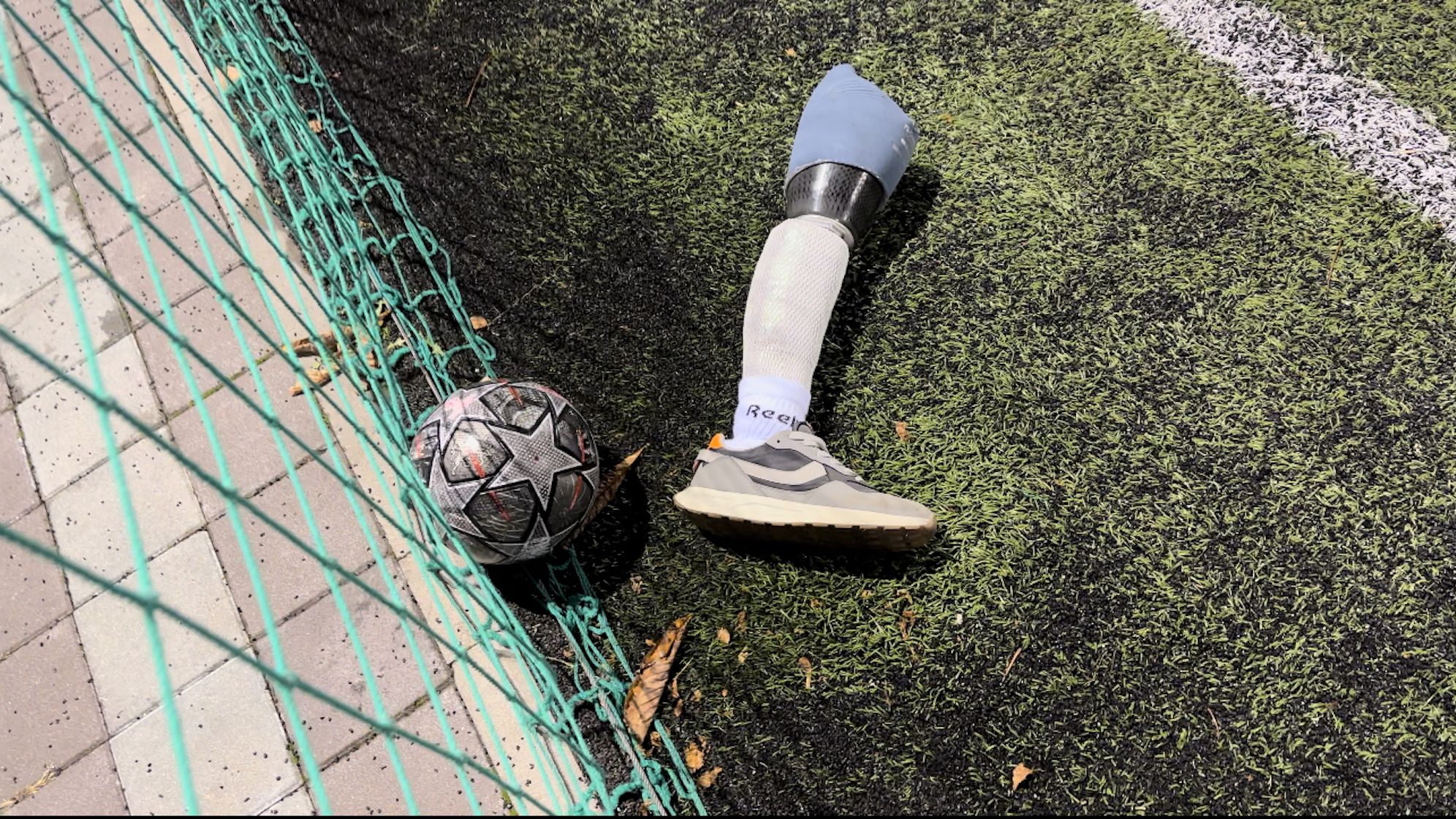
Rzondkovsky is a professional football coach and has a UEFA B license qualification. UEFA is European soccer’s governing body.
Even though Thursday’s session doesn’t involve professional players, this project is important for him. He sees the physical pain of the players but tries to support them by showing that they can be a big part of the sport.
Some of these soldiers participated in the premier competitions of the League of Nations of the European Football Federation among teams formed from players with limb amputations.
In October, the Ukrainian team took second place, defeating the national teams of Greece (2-1) and Belgium (1-0), and also shared points in goalless matches with the teams of Georgia and Israel.
“I’m really proud to coach these people,” added Rzondkovsky. “I’m not only their coach. I’m their friend. We are joking a lot during the breaks. It’s a very good atmosphere here.
“Thanks to football, they seem to come back to life after the war. In my opinion, rehabilitation through sport, through football, is the best, most effective rehabilitation that can exist.”
There is plenty of humor and support among the amputees during the Thursday game that CNN watches.
“It was harder on the frontline,” says 32-year-old Roman Lyndov, who plays as a goalkeeper at this game. He lost his left hand in February 2014 at the beginning of the Revolution of Dignity in Ukraine, also known as Euromaidan, when something exploded near him.
For Lyndov, spending evenings on the field is much better than lounging on the sofa. “This game is more about the character. We are here to win,” he says.
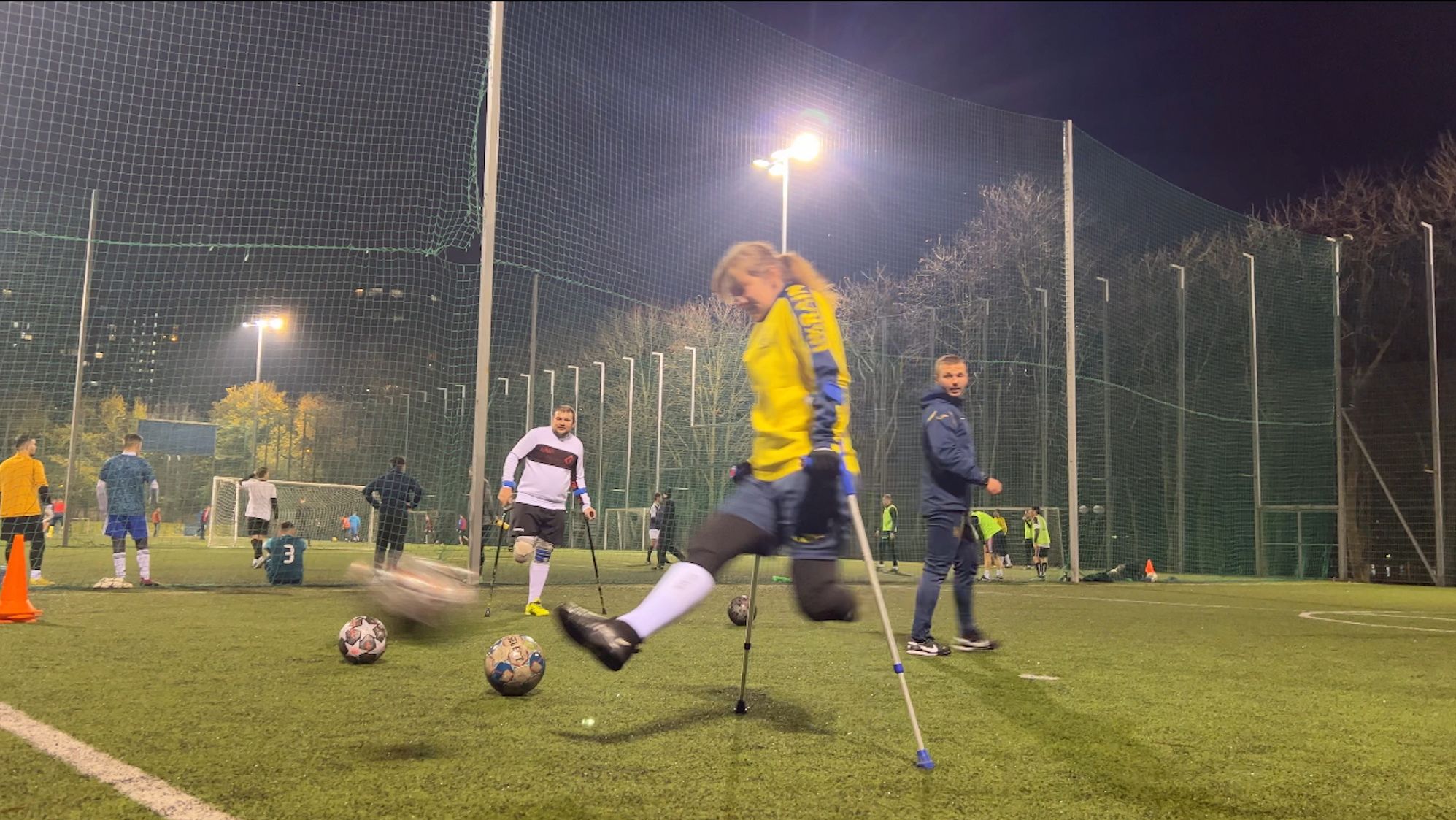
Another player is 31-year-old veteran Olha Benda. The mother of two boys, Benda lost part of her left hand in 2017.
She was the senior cook at the 72nd Mechanized Brigade. In 2017, with her unit, she was in positions in Avdiivka, eastern Ukraine.
She was sleeping in her room when shelling started. When the first explosion happened, Benda fell out of bed. After the second explosion, she was stuck under the rubble and then passed out.
There were about 10 Ukrainian soldiers at that location, but she was the only one who was seriously injured.
It’s her first training session in Kyiv. Before this, she had been to Poland to watch women’s games and also train. She plans to join the Ukrainian women’s amputee soccer team, which is just being formed. She gets tired faster than the men but doesn’t stop playing, even when out of breath.
“I don’t want to be last, I want to be on the same level as the men,” Beneda told CNN. “That’s why I don’t give up. I don’t want to sit in one place; I want to always be on the move and keep my body in good physical shape.
“I need to set an example for my sons,” explains Beneda, adding that her nine-year-old son is waiting for her at home and keeps asking her when she is going to start playing soccer with him.
Andriy, 42, is also at Thursday’s session. An infantryman, in charge of a rocket launcher, Andriy lost his left hand after being hit by a shell a few months ago in the Donetsk region.
He recently was fitted with a prosthetic but is currently on sick leave and has medical boards ahead of him. In the meantime, he dreams about the possibility of peace.
Malchevsky, who returned to the company where he had worked before the invasion as an electrical engineering analyst, says he plays not only for himself but also for his family.
“I have to take care of myself. I don’t want to be pushed around in a wheelchair in five years. I don’t want to ruin the lives of my child, wife and parents,” he reflects.


